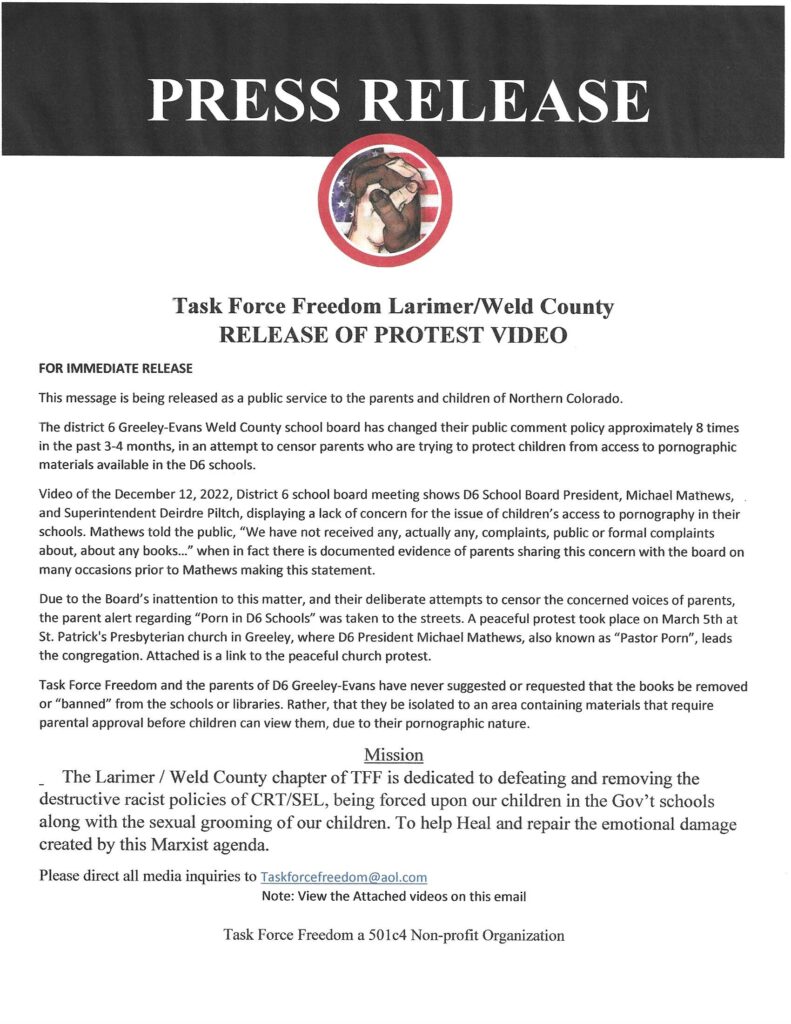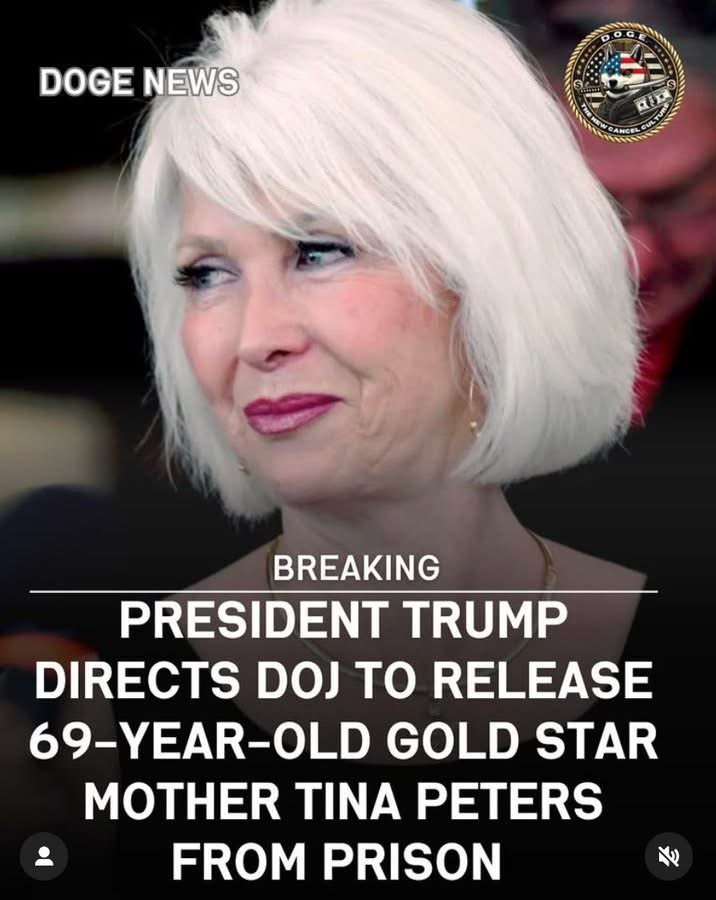
Greenly Evans School District 6 Board of Education Meeting 12/12/2022
Introduction: The Crisis in School Policies and Parental Rights
The ongoing debate surrounding the content of educational materials in schools has ignited significant controversy, particularly around issues of parental rights and school accountability. Parents and community members have raised serious concerns about the inclusion of explicit content, including pornography, in school libraries and curricula. These concerns are not about censorship, but rather about protecting children and ensuring that parents have a say in what their children are exposed to. This article explores the escalating tensions between school policies and parental rights, emphasizing the need for transparency, accountability, and community involvement in educational decision-making.
Parental Rights and the Protection of Children
At the heart of the current debate is the fundamental right of parents to protect their children from harmful and inappropriate content. Many parents argue that the presence of pornographic materials in school libraries is unacceptable and that such content should not be accessible to minors without parental consent. This issue is not about banning books, but about safeguarding children from exposure to materials that could be damaging to their mental and emotional well-being. Parents believe that they should have the ultimate authority to decide what is appropriate for their children, especially when it comes to sensitive topics like sexual content.
The Role of School Policies in Safeguarding Children
School policies play a crucial role in determining what materials are available to students and how those materials are reviewed and approved. However, concerns have been raised about the lack of transparency and accountability in how these decisions are made. For example, many parents have pointed out that schools are supposed to have book committees to review potentially problematic content, but these committees often fail to act in the best interest of the students. This has led to calls for greater public involvement in the decision-making process, ensuring that parents and community members have a say in what is deemed appropriate for school libraries.
The Impact of Inappropriate Content on Children’s Mental Health
The inclusion of explicit and inappropriate content in school materials has sparked concerns about its potential impact on children’s mental health. Studies have shown that exposure to such content can contribute to anxiety, depression, and even suicidal thoughts among young people. Parents are increasingly worried about the mental health crisis facing children today, and they argue that schools have a responsibility to protect students from materials that could exacerbate these issues. The outcry from parents is a call to action for schools to prioritize the well-being of their students and to ensure that educational content is age-appropriate and supportive of healthy development.
The Call for Accountability and Transparency in Schools
Parents and community members are demanding accountability from school boards and administrators for the decisions they make regarding educational content. There is growing frustration over the lack of transparency in how these decisions are made and the failure to address legitimate concerns raised by parents. For instance, when parents have brought up specific books containing graphic content, they have often been met with resistance or dismissive responses from school officials. This has only fueled the belief that the school system is failing in its duty to protect children and respect the rights of parents.
Public Involvement in Educational Decision-Making
One of the key solutions proposed by concerned parents is greater public involvement in the decision-making process regarding school materials. They argue that book committees and other review processes should include input from parents and community members who have a vested interest in the content that is made available to students. By involving the public, schools can ensure that their policies reflect the values and concerns of the community they serve. This approach also fosters a sense of trust and collaboration between schools and families, which is essential for creating a positive educational environment.
The Need for School Leadership to Address Concerns
Effective school leadership is essential in addressing the concerns of parents and ensuring that school policies are aligned with the best interests of students. However, many parents feel that current school leaders are failing in this regard. They point to instances where school officials have dismissed their concerns, refused to take action, or even defamed parents who have spoken out. This lack of responsiveness and accountability has eroded trust between schools and the communities they serve. Parents are calling for school leaders to step up, take responsibility, and make the necessary changes to protect children and restore faith in the educational system.
The Consequences of Ignoring Parental Concerns
Ignoring the concerns of parents and failing to address issues of inappropriate content in schools can have serious consequences. Not only does it put children at risk, but it also undermines the trust and cooperation that are essential for a successful educational system. When parents feel that their voices are not being heard, they are more likely to become disengaged or even hostile toward the school system. This can lead to a breakdown in communication and collaboration, ultimately harming the educational experience for all students. It is crucial for schools to take parental concerns seriously and to work together with families to create a safe and supportive learning environment.
Conclusion: The Path Forward for Schools and Communities / Greenly Evans School
The debate over educational content and parental rights is not just about what books are on the shelves; it is about the broader issue of how schools and communities work together to protect and educate children. Schools must prioritize transparency, accountability, and public involvement in their decision-making processes to ensure that they are meeting the needs of students and respecting the rights of parents. By addressing these concerns head-on and fostering a collaborative relationship with families, schools can create a learning environment that is safe, supportive, and conducive to the healthy development of all students.
Author
-

Task Force Freedom Contributor Brother K is an outspoken defender of moral integrity in education, focusing on uncovering the societal threats posed by radical ideologies in schools. With years of experience in activism, Brother K’s articles on Task Force Freedom aim to inform and empower parents to take a stand against dangerous influences affecting their children. His commitment to exposing harmful practices and advocating for family-centered values makes him a powerful force for change. Brother K’s anonymity is a reflection of his focus on the cause rather than personal recognition, as he continues to fight for the rights of families across the nation.
View all posts



